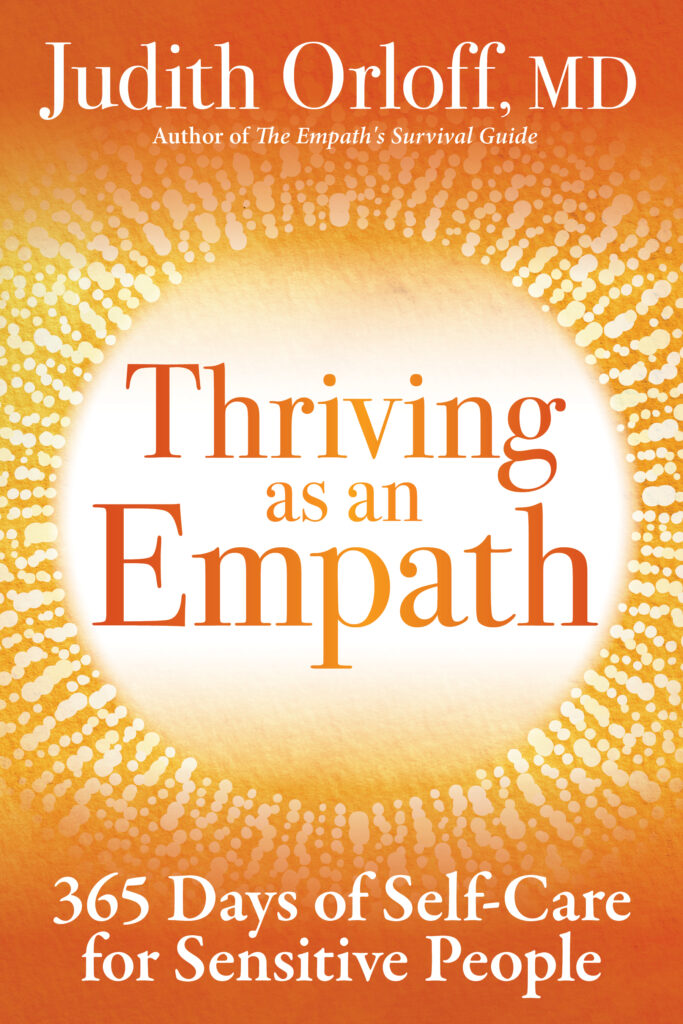Society tends to move us along at a breakneck pace, with endless to-do lists, 40-plus-hour work weeks and family and social obligations. We’re conditioned to live from the neck up, ignoring our bodies’ signals to slow down. Even the steeliest among us can become overwhelmed by societal stressors.
But for the estimated one-fifth of the population who are empaths — sensitive people who have delicate systems and require more rest and alone time — the hustle and bustle can feel overwhelming. Unless they have the skills to override stress, they live in the persistent, uncomfortable state of sensory overload. This can lead to becoming exhausted, burned out, ill or depressed.
Learning to deal with feeling overwhelmed is an essential part of an empath’s toolkit. Prevention practices can help alleviate the challenges of being an empath and optimize their gifts.
If you find that you’re affected by overwhelm, use these self-care practices to take charge and keep it in check:
1. Notice the first signs of sensory overload. The secret to reducing overwhelm is to notice it quickly and act before sensory overload gathers momentum. Your body is a sensitive intuitive receptor. Listen to its guidance. The sooner you can act by reducing stimulation and centering yourself, the more balanced and protected you will be. To center yourself, focus on your breath. Tell your body, “I will treat you like a friend and pay attention to your signals. When I’m overloaded I will be quiet. If I need a break, I will make time for one.” Treating yourself well will help you feel more energized and alive.
2. Learn to detect emotional vampires. Practice sensing the energy around various people with whom you interact. Pay attention to how it feels when people emit positive energy. Does your vitality increase around certain people? Do you feel relaxed or uplifted? Then notice what negative energy feels like. Ask yourself, “Do I feel anxious, sick or exhausted?” If certain people zap your energy or leave you feeling overwhelmed, factor this into your choices about being around them at work, in a relationship or in other areas of your life.
3. Prepare for critical moments. Offset the possibility of overwhelm at critical times — such as before an intense meeting or a challenging social encounter — by taking some time to unplug from stimulation. Retreat to a room without sound or bright light. Even a few minutes of focused breathing or meditation can center you. A little preventative self-care can recalibrate you to a more balanced state and better ready to handle what lies ahead.
4. Create time to decrease stimulation. A secret to an empath’s happiness is creating adequate alone time. It’s important to allow yourself to stop absorbing the stress of the world. This soothes your neurological system and reduces sensory overload so you can feel more inner peace. Taking a break from the busyness of life is good medicine. After you decompress, the world won’t seem as overwhelming and you enjoy your time together with other people.
Each day, treat yourself with kindness. Honoring your sensitivities is an act of self-love.
* * *
 Judith Orloff, M.D., is a New York Times bestselling author, a member of the UCLA Psychiatric Clinical Faculty, and has a Facebook Empath Support Community with more than 6,000 members. She has been featured on The Today Show, CNN, and in Oprah Magazine, the New York Times and more. Her new book, Thriving as an Empath: 365 Days of Self-Care for Sensitive People (Sounds True, Oct. 22, 2019), draws from her own experiences as an empath to share the secret to well-being. Learn more at drjudithorloff.com.
Judith Orloff, M.D., is a New York Times bestselling author, a member of the UCLA Psychiatric Clinical Faculty, and has a Facebook Empath Support Community with more than 6,000 members. She has been featured on The Today Show, CNN, and in Oprah Magazine, the New York Times and more. Her new book, Thriving as an Empath: 365 Days of Self-Care for Sensitive People (Sounds True, Oct. 22, 2019), draws from her own experiences as an empath to share the secret to well-being. Learn more at drjudithorloff.com.

